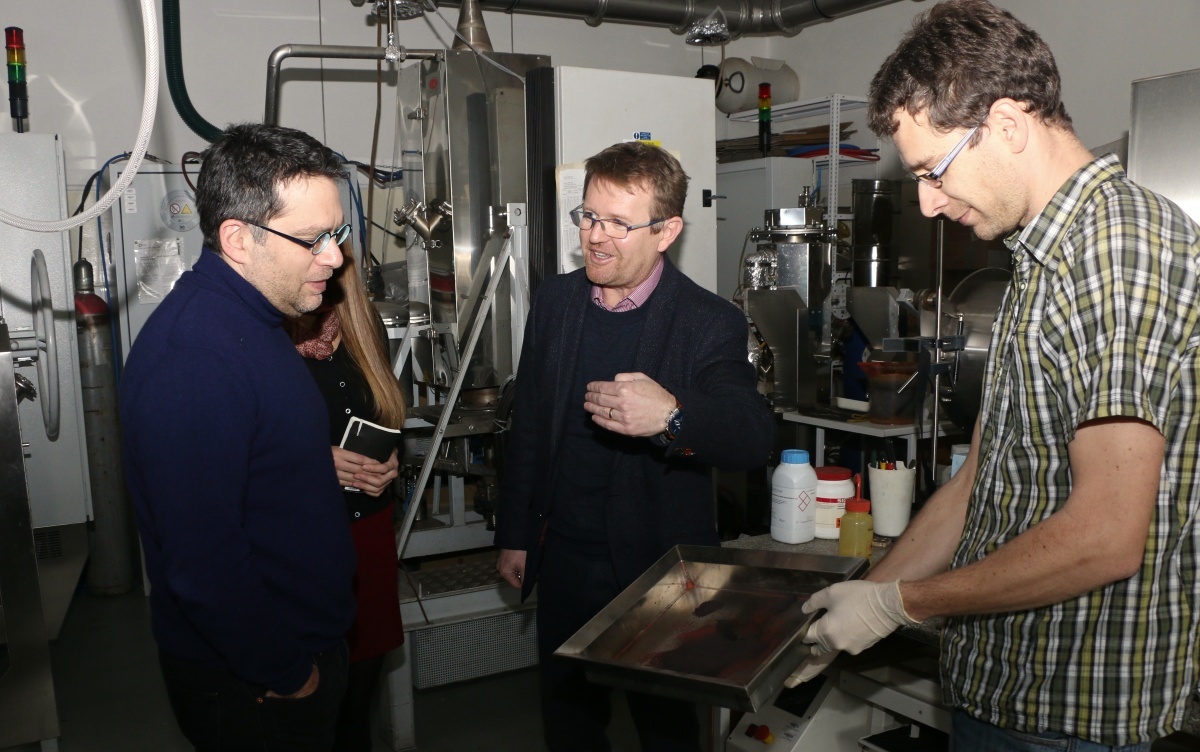Scientific Attaché of The French Embassy visits RCPTM
Mathieu Wellhoff, the attaché for Scientific and Higher Education Cooperation, was full of praise for the research done at the Regional Centre of Advanced Technologies and Materials (RCPTM) and the Centre of the Region Haná (CRH). He said that the visit to the centres went beyond his expectations, and it may result in future collaboration.
“In Prague, where I am based, I often hear only about local research centres along with Brno but what I saw in Olomouc was terrific. The quality of the research here is higher than I expected. What really caught my interest was the fact that an institute on a smaller scale can achieve better results than far bigger ones,” said Wellhoff. Among others, it was the promotion of the centres by CzechInvest and the large number of candidates and laureates of various awards, which the French embassy presents, that made him visit Olomouc. Lauriane Labourel, a Scientific programmes officer at the French Institute in Prague, accompanied him.

In both centres, our special guests learnt about the main research areas and the most notable achievements. They also looked at Czech science from the future perspective, once it is has passed the period of sustainability of grant-funded programmes linked to the Operational Programme ‘Research and Development for Innovations ’. “I assume that all centres that fall within this framework have to prepare towards the end of the above-mentioned period. It may cause chaos and not all centres are likely to survive. Nevertheless, the centres in Olomouc seem to be in a better condition than others I have already visited. They are more ‘agile’ and they do not have a problem agreeing about the management strategy. Larger institutes may often face disagreements in this area,” said the attaché. Mathieu Wellhoff is convinced that the collaboration between the Czech Academy of Science and universities is not sufficient. Moreover, the fact that the Czech scientific environment does not suffer from lack of money leads to ineffectively deploying European resources.
Radek Zbořil, RCPTM Director, escorted the guests on a guided tour of the laboratories. Above all, he introduced the high-resolution electron microscope, which belongs to the most effective ones in the Czech Republic, or low temperature scanning electron microscope, which enables to image individual molecules and manipulate them. The embassy representatives also eagerly watched iron nanoparticles burning.
“I was impressed by how familiar our French guests were with the Czech scientific environment. As we are closely collaborating with a number of institutes in Paris; Limoges; or Nantes, we are interested in offers for joint workshops with the goal of applying for European grants like H2020 and mainly in the possibility of financing the stay of our doctoral students at excellent French workplaces. In addition, our colleagues got excited about our ‘double degree’ programme, which has been implemented at the Department of Physical Chemistry and could be of inspiration for other institutes in the Czech Republic. We are planning a meeting to discuss this in Prague,” said Zbořil.


